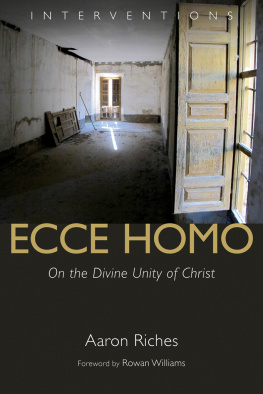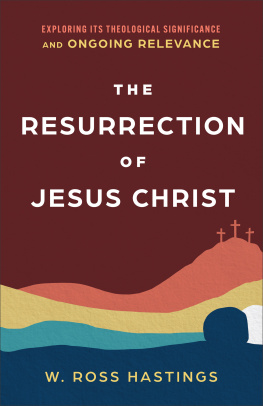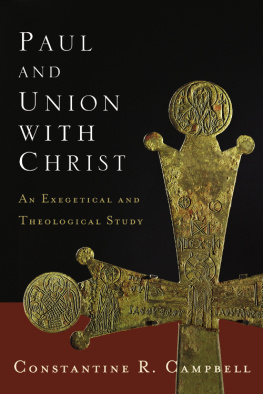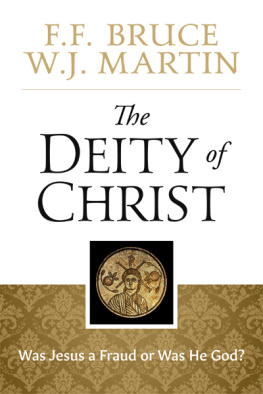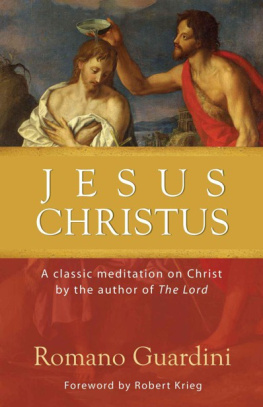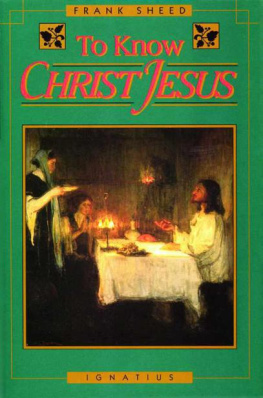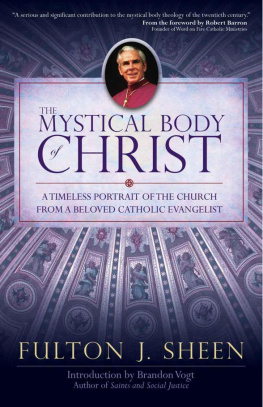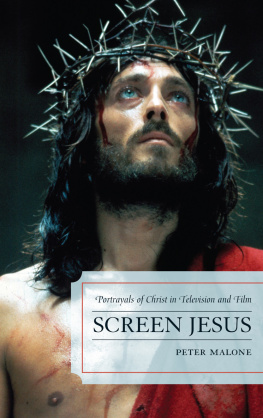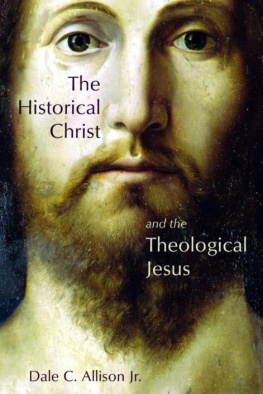A highly significant contribution to the field of Christology. Aaron Riches argues that the Christology sanctioned by the great ecumenical councils of the first millennium was not about finding some middle line that balanced out excessive and mutually competitive emphases on Jesus divinity or humanity. Rather, it was animated by an existential and liturgical encounter with the one Lord Jesus Christ, whose integral duality is recognizable only to the extent that his absolute singularity is maintained.
TRACEY ROWLAND
John Paul II Institute for Marriage and Family, Melbourne
Pondering the confession of the one Lord Jesus Christ that is the basis of the Nicene faith, Riches demonstrates what is at stake in recognizing that Christianity reaches into the most intimate depths of the human being.
DAVID L. SCHINDLER
Pontifical John Paul II Institute for
Studies on Marriage and Family
INTERVENTIONS
Conor Cunningham
GENERAL EDITOR
Its not a question of whether one believes in God or not. Rather, its a question of if, in the absence of God, we can have belief, any belief.
If you live today, wrote Flannery OConnor, you breathe in nihilism. Whether religious or secular, it is the very gas you breathe. Both within and without the academy, there is an air common to both deconstruction and scientism both might be described as species of reductionism. The dominance of these modes of knowledge in popular and professional discourse is quite incontestable, perhaps no more so where questions of theological import are often relegated to the margins of intellectual respectability. Yet it is precisely the proponents and defenders of religious belief in an age of nihilism that are often among those most unwittingly or not complicit in this very reduction. In these latter cases, one frequently spies an accommodationist impulse, whereby our concepts must be first submitted to a prior philosophical court of appeal in order for them to render any intellectual value. To cite one particularly salient example, debates over the origins, nature, and ends of human life are routinely partitioned off into categories of evolutionism and creationism, often with little nuance. Where attempts to mediate these arguments are to be found, frequently the strategy is that of a kind of accommodation: How can we adapt our belief in creation to an already established evolutionary metaphysic, or, how can we have our evolutionary cake and eat it too? It is sadly the case that, despite the best intentions of such intellectual ecumenism, the distinctive voice of theology is the first one to succumb to aphonia either from impetuous overuse or from a deliberate silencing.
The books in this unique new series propose no such simple accommodation. They rather seek and perform tactical interventions in such debates in a manner that problematizes the accepted terms of such debates. They propose something altogether more demanding: through a kind of refusal of the disciplinary isolation now standard in modern universities, a genuinely interdisciplinary series of mediations of crucial concepts and key figures in contemporary thought. These volumes will attempt to discuss these topics as they are articulated within their own field, including their historical emergence, and cultural significance, which will provide a way into seemingly abstract discussions. At the same time, they aim to analyze what consequences such thinking may have for theology, both positive and negative, and, in light of these new perspectives, to develop an effective response one that will better situate students of theology and professional theologians alike within the most vital debates informing Western society, and so increase their understanding of, participation in, and contribution to these.
To a generation brought up on a diet of deconstruction, on the one hand, and scientism, on the other, Interventions offers an alternative that is otherwise than nihilistic doing so by approaching well-worn questions and topics, as well as historical and contemporary figures, from an original and interdisciplinary angle, and so avoid having to steer a course between the aforementioned Scylla and Charybdis.
This series will also seek to navigate not just through these twin dangers, but also through the dangerous and that joins them. That is to say, it will attempt to be genuinely interdisciplinary in avoiding the conjunctive approach to such topics that takes as paradigmatic a relationship of theology and phenomenology or religion and science. Instead, the volumes in this series will, in general, attempt to treat such discourses not as discrete disciplines unto themselves, but as moments within a distended theological performance. Above all, they will hopefully contribute to a renewed atmosphere shared by theologians and philosophers (not to mention those in other disciplines) an air that is not nothing.
CENTRE OF THEOLOGY AND PHILOSOPHY
(www.theologyphilosophycentre.co.uk)
Every doctrine which does not reach the one thing necessary, every separated philosophy, will remain deceived by false appearances. It will be a doctrine, it will not be Philosophy.
Maurice Blondel, 1861-1949
This book series is the product of the work carried out at the Centre of Theology and Philosophy (COTP), at the University of Nottingham.
The COTP is a research-led institution organized at the interstices of theology and philosophy. It is founded on the conviction that these two disciplines cannot be adequately understood or further developed, save with reference to each other. This is true in historical terms, since we cannot comprehend our Western cultural legacy unless we acknowledge the interaction of the Hebraic and Hellenic traditions. It is also true conceptually, since reasoning is not fully separable from faith and hope, or conceptual reflection from revelatory disclosure. The reverse also holds, in either case.
The Centre is concerned with:
- the historical interaction between theology and philosophy.
- the current relation between the two disciplines.
- attempts to overcome the analytic/continental divide in philosophy.
- the question of the status of metaphysics: Is the term used equivocally? Is it now at an end? Or have twentieth-century attempts to have a postmetaphysical philosophy themselves come to an end?
- the construction of a rich Catholic humanism.
I am very glad to be associated with the endeavours of this extremely important Centre that helps to further work of enormous importance. Among its concerns is the question whether modernity is more an interim than a completion an interim between a pre-modernity in which the porosity between theology and philosophy was granted, perhaps taken for granted, and a postmodernity where their porosity must be unclogged and enacted anew. Through the work of leading theologians of international stature and philosophers whose writings bear on this porosity, the Centre offers an exciting forum to advance in diverse ways this challenging and entirely needful, and cutting-edge work.
Professor William Desmond, Leuven
ECCE HOMO
On the Divine Unity of Christ
Aaron Riches
WILLIAM B. EERDMANS PUBLISHING COMPANY
GRAND RAPIDS, MICHIGAN
2016 Aaron Riches
All rights reserved
Published 2016 by
Wm. B. Eerdmans Publishing Co.
2140 Oak Industrial Drive N.E., Grand Rapids, Michigan 49505
22 21 20 19 18 17 16 7 6 5 4 3 2 1
Library of Congress Cataloging-in-Publication Data
Names: Riches, Aaron, 1974
Title: Ecce Homo: on the divine unity of Christ / Aaron Riches.

